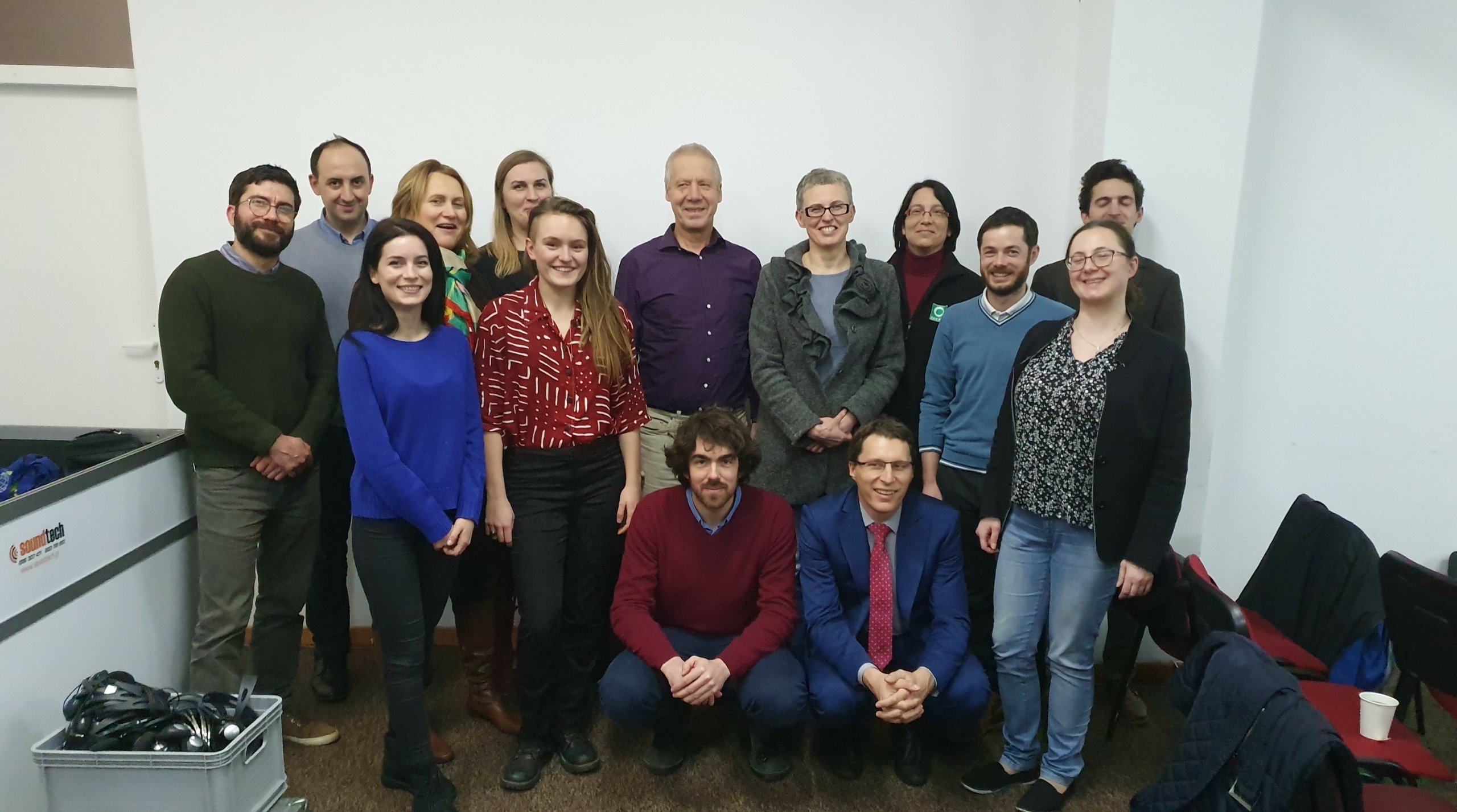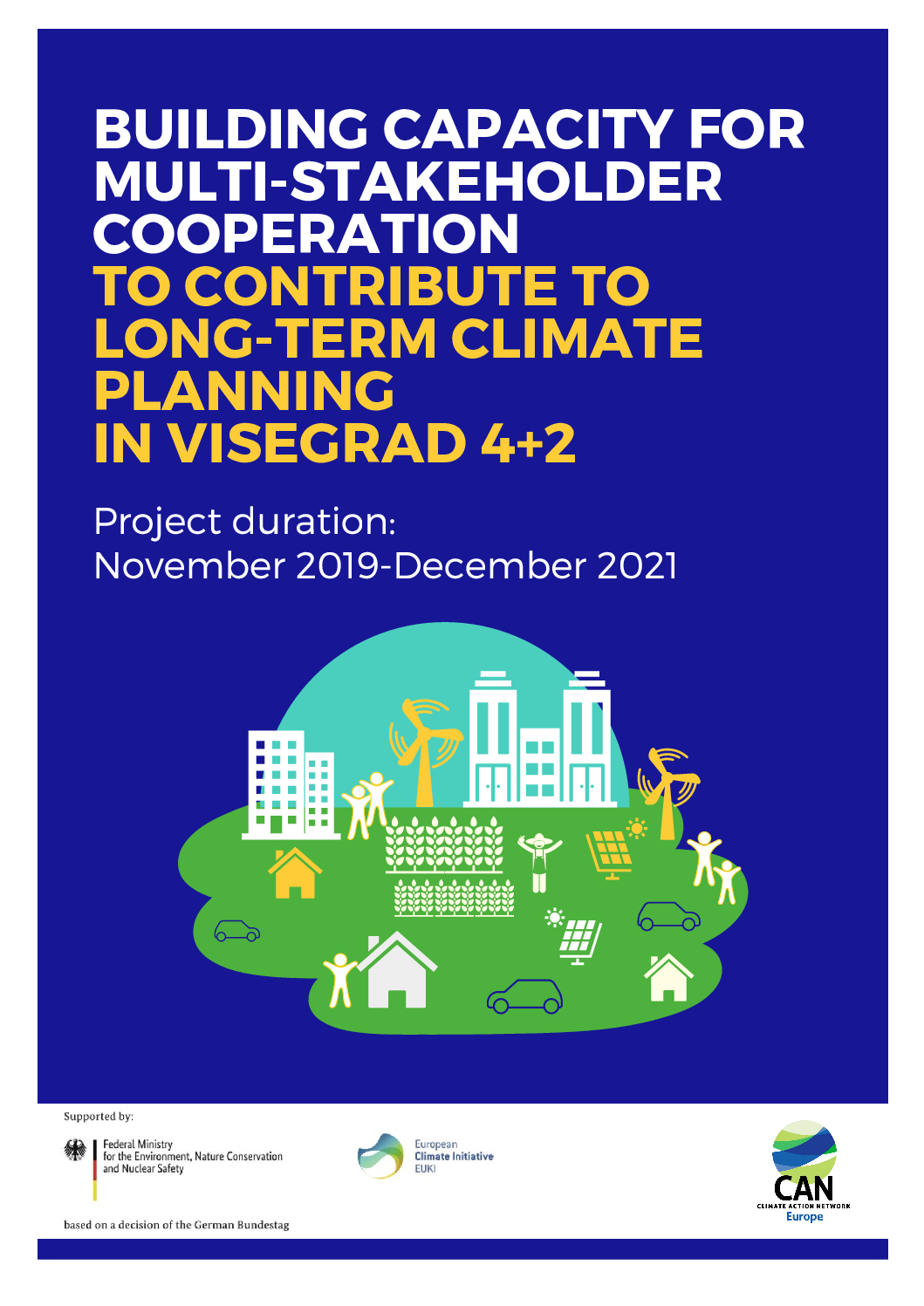Capacity Building for Ambitious Long-Term Strategies
This project is completed. The project intended to improve the quality of long-term strategies (LTS) for decarbonisation in the Visegrad 4+2 countries (Poland, Czechia, Hungary, Slovakia as well as Romania and Bulgaria) by increasing the capacity of Civil Society Organisations (CSOs) to engage more effectively with national long-term strategy processes.
Climate Policy Climate Strategies and Plans

Project info
Bulgaria, Czech Republic, Hungary, Poland, Romania, Slovakia
11/19 - 12/21
Non-governmental organisations, Civil society, Associations, National governments, Educational institutions
257,710.00 €
Contact info
Maria Radikov
Background
Most of the V4+2 Member are struggling with the concept of fully decarbonising their economy as it is perceived as increasing economic and social cost. This has led to resistance against the EU’s vision of achieving climate neutrality by 2050. However, the achievement of the temperature objectives of the Paris Agreement requires the implementation of decarbonisation in Visegrad 4+2. While the debate around decarbonisation mostly focuses on the energy sector, it is also crucial to highlight the decarbonisation of other sectors (industry, agriculture or transport).
All in all, there is a need for inclusive and comprehensive transition visions and narratives that highlight the co-benefits of climate-neutral transition for the society to foster this development and build broad societal support for the zero-emissions transition. A narrative putting forward these positive co-benefits needs to be developed in each country by national actors that are best placed to analyse the national circumstances.
Project
The project focussed on a multi-stakeholder and cross-sectoral exchange on positive outcomes of the ambitious long-term climate strategies. This exchange offered a starting point for debate in other countries, and also in the region as a whole, thereby creating synergies and showing new opportunities for developing strategies for the transformation towards zero-carbon economies and societies.
The project envisaged a three-step theory of change to increase the capacity of CSOs to operate within the national context. First, it encouraged CSOs to engage more effectively with long-term strategy processes, second it aimed to improve the consistency of national LTS with EU LTS and the Paris Agreement, and third it wanted to foster exchange with other stakeholders on the topic. The three core countries targeted by the project will be Poland, Czechia and Hungary.
Results
- The project developed a nLTS assessment report and applied it to the national strategies in a constructive way.
- The project substantially enhanced the cooperation among various stakeholders on national levels in Czechia, Poland and Hungary. On a regional level (including also Bulgaria, Romania, and Slovakia) it established new spaces to jointly address horizontal issues such as crucial role of the public participation in designing and implementing climate and energy policies.
- The project also “brought” CEE climate and energy CSOs, think-tanks and experts to Brussels via two “Virtual Study Tours” that provided a unique possibility to establish direct connections to the key EU stakeholders and talk to the European Commission, MEPs, EU business and cities associations as well as trade unions about the CEE specific challenges and opportunities around energy transition, climate action, and EU funding.
Last update: July 2024

